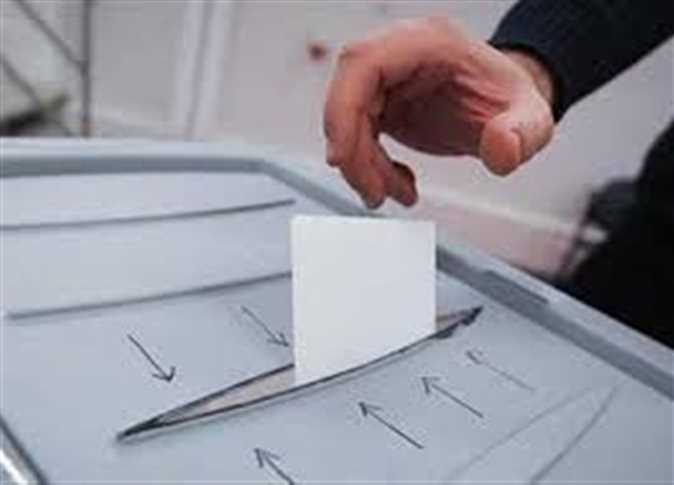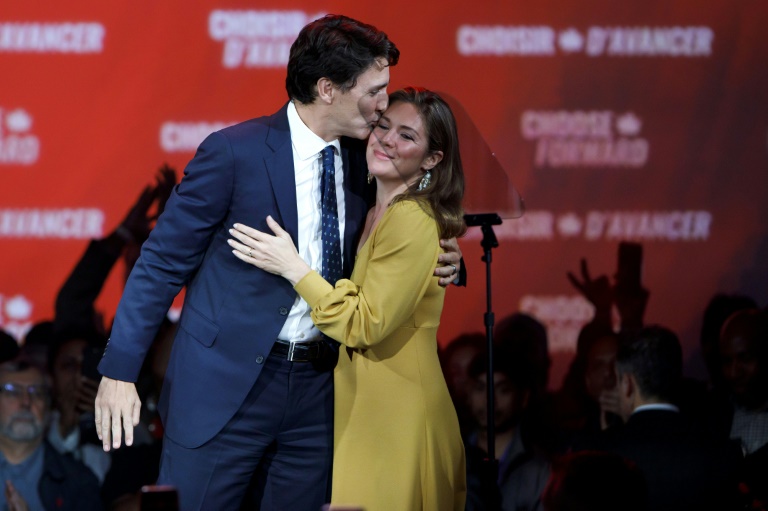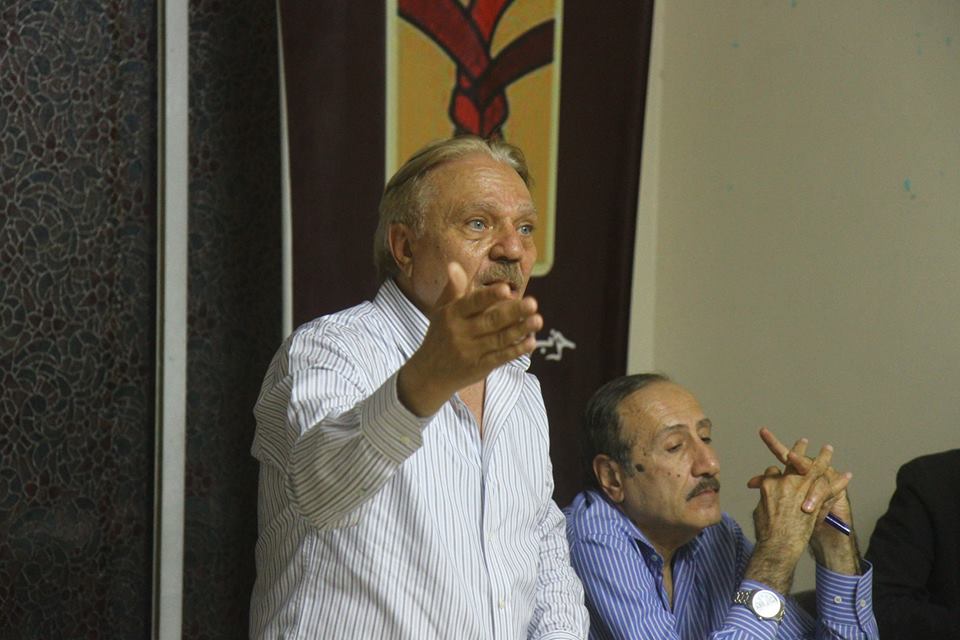Formed on a wave of optimism last year, political realities and internal squabbles have taken their toll on the secular parties that were supposed to usher in a new era of political life post-revolution.
And yet a year on, for many of the parties a constant state of disarray and disagreement seems to be the norm. More pertinently, the democracy that these parties are purported to represent are glaringly lacking behind closed doors, according to the accounts of some of their own members.
“While these parties claim to uphold democratic principles at heart, this is not the case in reality,” said Mohamed Naeim, a member of the High Committee of the newly formed Egyptian Social Democratic Party (ESDP).
The choices made around the presidential elections scheduled to kick off on Wednesday are a case in point.
Egyptian Social Democratic Party
The ESDP, like the liberal Free Egyptians Party and Adl Party, decided not to back a presidential candidate in the first round of elections due to internal divisions among its members.
ESDP leaders are inclined toward supporting Amr Moussa, while the party governorates’ secretariats prefer Abdel Moneim Abouel Fotouh and the youth support Hamdeen Sabbahi, according to Naeim.
“The inability to make a democratic decision and abide by it forced us to leave everyone to vote freely in order to avoid splits,” Naeim added.
The ESDP leader explained that the Higher Committee’s legitimacy is always being contested since not all its members were democratically elected, which means that party members are always challenging their decisions.
Paradoxically, the ultra-conservative Salafi Nour Party seemed to exercise more democratic practices when making the decision to endorse Abouel Fotouh. The choice came after extensive discussions and meetings between the party’s Shura Council, Higher Committee, the parliamentary bloc and the governorates’ secretariats. These discussions ended with 75 percent voting in favor of endorsing the former Muslim Brotherhood leader. Since then, the party’s leaders have pledged to support the presidential candidate by all means despite ideological differences.
More than 80 of the ESDP's members in Kafr al-Sheikh Governorate resigned in the last parliamentary elections to protest party leaders’ choice of candidates without consulting with them.
Another major failure of the ESDP is a lack of transparency in decision-making. “Transparency is not always guaranteed, which is justified by the rapid developments in the Egyptian political scene that require quick responses from the leaders,” said Naeim. Thus, the president and some other party leaders do not consult with the 40 members of the Higher Committee before every single decision. “This allows personal political interests to dictate decisions.”
The ESDP was created following the ouster of former President Hosni Mubarak, who was forced to step down by a large group of revolutionaries including liberals, leftists and other newcomers to the political scene. Negotiations are currently underway to merge with the new Constitution Party formed by Mohamed ElBaradei, according to Naeim.
The Free Egyptians
The liberal Free Egyptians Party opted to not endorse any particular candidate in the presidential elections due to looming discord, according to its members.
The party was formed amidst much fanfare due to support from billionaire tycoon Naguib Sawiris. At some point, the party was expected to be the best equipped to counter the more entrenched Islamist parties.
But even before the parliamentary elections took place, divisions had already emerged when a faction from within the party called the “Group of 17” accused the central leadership of undemocratic practices in picking party leaders in Damietta and allowing former members of the National Democratic Party into the ranks.
According to member of the party’s high board, MP Bassel Adel, the party has been “in transition” since its formation, and as thus, it was decided that no elections would take place internally for an initial period of time. The first internal elections are slated for July.
“The party is still building itself and branching out in the governorates; it is yet to grow,” he said.
Adl
The centrist Adl Party has seen growing discontent within its ranks in recent months, with members resigning en masse almost every month now.
A fundamental reason for dissent within the ranks, according to Safa Harak, a member of the media committee in Giza who resigned last month, was the party’s decision to support the presidential bid of Amr Moussa, considered by many of the party members to be affiliated with the Mubarak regime due to his time as Mubarak's foreign minister.
When Moussa visited the party headquarters, Harak and others raised a sign that said, “No to feloul (remnants of the old regime).” Another party member tore up the sign. Harak and her colleagues had their memberships frozen, and then she resigned.
Some internal elections did take place in the party but were not widespread according to former member Mostafa Nassar. This was also said to be because it was a newly formed party yet to establish itself.
According to Harak, the party is seeing internal turmoil because even though there are internal elections, there are attempts to manipulate the outcome.
The party doesn’t have a chairman at the moment, but instead is run by a committee comprising three members.
Socialist Popular Alliance
This leftist party is mired in divisions between the old guard and the new, according to party member Akram Ismail, exemplified in the decision to field Abul Ezz al-Hariry in the presidential election.
The party is made up of three groups: the old guard, who are ex-members of the leftist Tagammu Party, independent leftists, and young members of Socialist Renewal youth movement. The three factions have not been able to reconcile their ideological differences under the party’s umbrella, Ismail told Egypt Independent.
The choice to field Hariry in the presidential elections was problematic, according to Ismail. Although the decision was voted upon by the General Secretariat — 27 members were in favor and 13 against — the choice was mainly dominated by the old guard of the party.
Ismail explained that the young leftists are more open to cooperating with Islamists, and they were in favor of supporting Abouel Fotouh in the elections, but this was completely opposed by the other two groups. “When they brought up his name in the General Secretariat meeting, it was met with strong reaction from the old leaders and they decided on Hariry,” Ismail told Egypt Independent.
“The existence of different shades of the leftist ideology leads to a constant tug of war before key decisions are made, but the old guard exercises authority over decision-making because they control the party’s resources and some of them are influential public figures,” he argued.
In addition to funding election campaigns and the party’s offices across the country, the leftist leaders enjoy more advanced organizational experience compared to the other two groups who are newcomers to party politics.
The General Secretariat, whose 50 members vote on the party’s political decisions, constitutes a higher number of the old leftists. The Secretariat was elected by the founding conference that comprised representatives from all the parties’ committees across the country.
Another problem that undermines the party’s cohesion is that the young revolutionaries do not abide by the General Secretariat’s decisions if they run contrary to their opinions, unlike the older politicians, added Ismail.
“Those groups who opposed the nomination of Hariry don’t participate in the campaigning, and they don’t plan to vote for him,” said Ismail.
“This is a disaster because the party hasn’t built the core of its political organization yet, so it’s very dangerous to have such a divide between the members at early stages of its establishment,” he said.
On the other hand, Marwa Farouk, a member of the General Secretariat and the executive office, downplayed the case of Hariry as an exception to earlier decisions that were democratically made. “It’s one of the best parties in terms of endorsing democratic mechanisms. No other party has done bottom up elections for its leadership as we did, and the founding members can’t take a unilateral decision without consulting with the rest of the members,” said Farouk. For her, the differences are a positive rather than a negative attribute to the party.
“We aim to create a party that can be an umbrella to all the Egyptian left with its variations, including revolutionary socialists, social democrats, etc.,” said Farouk.
The party leadership decided to allow its members to create ideological platforms or blocs inside the party that represent the different currents, Farouk told Egypt Independent.
“These blocs will be created on the condition that they are not organizational in the sense that they don’t contradict the majority’s decision on the ground.”
Naeim called the new secular parties “transitional,” predicting they will undergo major restructuring and mergers in the coming period.
“They [secular parties] are more like political fronts or coalitions rather than parties. They don’t have a clear ideology as most of them were created to combat Islamists,” Naeim concluded.




